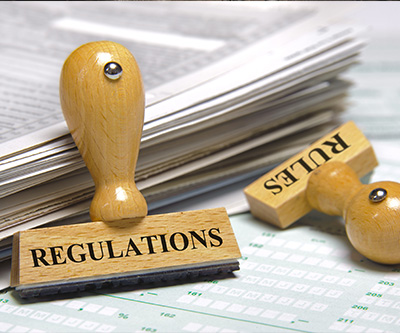Due Diligence and General Duty Provisions
Posted: Dec. 3, 2019 • By Kevin Kohler

We follow the safety regulations that seem to apply to our work
That may not be sufficient to keep everyone safe. OHS legislation is not meant to address every specific circumstance that might arise.
To ensure that employers keep all workers safe in “all circumstances” OHS laws include an overarching general duty for employers to:
- Keep all workers at or near their worksite healthy and safe, at all times.
Examples of general duty provisions

The specific wording of general duty provisions varies from jurisdiction to jurisdiction; some examples include:
Ontario: Under the OHS Act, employers must “take every precaution reasonable in the circumstances for the protection of a worker [clause 25(2)(h)]”
Alberta: Under the OHS Act 3(1) “Every employer shall ensure, as far as it is reasonably practicable for the employer to do so, (a) the health and safety of (i) workers engaged in the work of that employer…”
USA: OSH Act of 1970, Section 5(a)(1) “Each employer shall furnish to each of his employees, employment and a place of employment which are free from recognized hazards that are causing or are likely to cause death or serious physical harm to his employees.”
How does practicing “due diligence” help us meet our responsibilities?
In order to satisfy your general duty requirements you must do everything that is “reasonable” to ensure the health and safety of those working under you. You should ask yourself: “What would a reasonable person do under the same circumstances to keep workers safe?”
The steps that you take to satisfy the general duty clause demonstrate “due diligence”. Here’s what WorkSafe BC has to say about due diligence in the workplace:
“Due diligence requires taking all reasonable steps to protect workers from harm. “All reasonable steps” is based on the level of judgment and care that a person would reasonably be expected to do under the circumstances. An organization that actively manages health and safety and takes all reasonable steps to protect workers from harm is being duly diligent.”
What happens when things go wrong and we can’t demonstrate due diligence?

In addition to charges under the prevailing OHS legislation for safety violations, there may be criminal charges for employers and individual employees who negligently fail to protect workers.
Here is one such example cited by the Canadian Centre for Occupational Health and Safety:
“On December 24, 2009 four workers were killed and one was seriously injured at a Toronto construction site when the swing stage scaffolding they were on collapsed. (The company) and three corporate officers were charged with criminal negligence… (The) owner was personally fined … A total of 61 charges were laid by the Ministry of Labour… In September 2013, the Appeal court tripled the fine …, raising it to $750,000 for Criminal Negligence. In 2016, a supervisor was charged and convicted under the Criminal Code, and was sentenced to 3.5 years in prison.”
Your Health and Safety Management System (HSMS)
The best way to meet your health and safety obligations is through an effectively implemented HSMS. Your HSMS must:
- Meet all legislated requirements
- Follow best industry practices
- Have a comprehensive hazard assessment and control program
- Include employee training, verification and retraining
- Include on-going monitoring for effectiveness
- Include provisions for continuous improvement through audits and evaluation against goals and objectives
Demonstrating due diligence requires more than a safety manual and some forms. You must have a comprehensive and integrated safety program that is fully implemented and verified to demonstrate that you have met your duty of care to safeguard all workers.
Related Articles

Foreign Workers
Who are foreign workers? In Canada foreign workers are workers who are permitted to work here on a temporary basis. Lawfully […]
Read Article
Drug and Alcohol Program Review
Our drug and alcohol program hasn’t changed A drug and alcohol program consists of a policy statement from senior management […]
Read Article